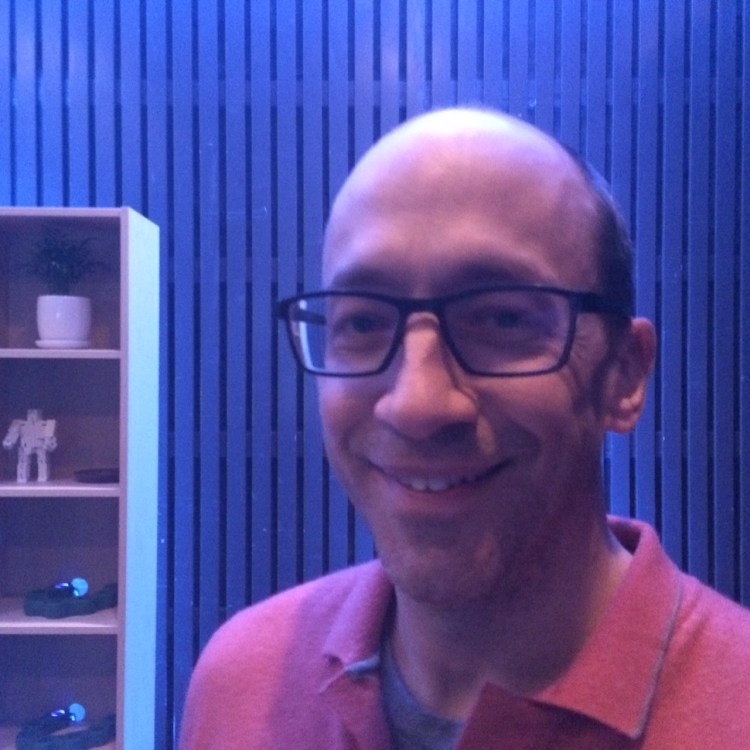San Francisco — Twitter’s developer conference in the city by the Bay, called Twitter Flight, was really about extending an olive branch to app developers.
At Flight, the microblogging site’s CEO Dick Costolo took the stage for the keynote at 10:00 a.m. PT and quickly made clear Twitter’s commitment to working with outside app developers and partners for the long haul. Twitter has sometimes enjoyed a difficult relationship with developers, but this could likely change after today.
Costolo announced Fabric, which he said was created to help app developers design killer products and provide support during the building process. Fabric, which is free, will also give developers a pipeline to report problems in the development process via Crashlytics. Costolo also made it clear that mobile ads were an important part of his company’s strategy.
Costolo, addressing nearly 1,000 developers in the Bill Graham Civic Auditorium, said today’s gathering “was all about you.”
“(Fabric) always provides you with the needs and services you need and want and is entirely about building direct ties between you and your users. Not us,” Costolo said.
Costolo noted a few of Fabric’s partners: McDonald’s, Spotify, Jawbone, and The Wall Street Journal, all of which were seated in the audience and are now using Fabric.
“All of us are so excited to be here today to unveil what we believe is the future of mobile software development,” Costolo said.
Twitter Flight comes a few days away from reporting its fourth quarter earnings. In the third quarter, Twitter saw a huge amount of traffic with the results of the World Cup in Brazil, which boosted their revenues. Twitter was forced to reveal, however, that people were spending less time on the site than previously.
Costolo noted there are three facets to Fabric:
– Crashlytics, which Twitter owns, will assist developers in the process phase of app development. Crashlytics will help developers test and build their apps as well as debug them. This is likely to create a vast repository of intelligence for Twitter and developers in what works building apps … and what doesn’t.
– MoPub, a mobile ad platform, was bought by Twitter for about $350 million last year. Costolo said MoPub has taken a front seat in a bid to help app developers monetize their products on the Twitter platform. This is clearly an olive branch, because it shows that Twitter needs outside developers to build new products that will sell the Twitter brand. And it illustrates Twitter’s belief that mobile is the future.
– TwitterKit was also unveiled today. It enables apps to integrate into Twitter for streamlining real-time information. (For example, Citymapper will now Tweet live information on BART trains to users.) TwitterKit allows developers to embed Tweets natively, as well as allows users to log into apps via Twitter.
Another aspect of TwitterKit is Digits, a new SMS-based sign-in protocol that allows users to sign in to mobile apps. Digits makes it easier to use text verification instead of entering your entire log-in and password. The name of the game here is speed.
Many in the audience clapped. But some were more circumspect about Fabric, saying it’s too early to tell what it all means in the long run.
Clari app developer Kyle Buza told VentureBeat that his company has not had great success using Crashlytics and instead uses Crittercism. The vast majority of Twitter’s new offerings Wednesday failed to impress him, especially Digits.
“These are mainly consumer-oriented products used by people to integrate Twitter and to monetize their products. The general sentiment of Twitter is a history of not playing particularly well with developers historically, so there is some hesitation by some of us,” Buza said.
Buza also said Twitter’s new Digits authentication doesn’t do anything for him, because the authentication process has never been a “pain point for developers.”
“It’s not clear to me what Digits offers that will make my life that much easier. Native iOS also has ways to do authentication too,” he said.
Costolo then introduced Crashlytics co-founder and Fabric product manager Jeff Seibert, who took the stage to offer his take.
“Twitter started on mobile. From it’s launch years ago as SMS-based product, Twitter has evolved along with the mobile ecosystem. Over that time, they have become deeply familiar with the entire range of challenges that all of you have experienced building these apps,” Seibert said.
Seibert was nothing if not enthusiastic about outside developers building apps for Twitter, making the platform better and even making money.
“Whether you’re building for iOS or for Android, or whether you’re a student in a dorm room, or you’re a large multinational, these challenges are the same. When we started Fabric over a year ago, our goal was simple: How can we solve as many as these challenges as possible?” he asked.
“We believe that by bringing together Crashlytics, Twitter, and MoPub, that we can create a platform that can solve these challenges, not just for us, but for all of you gathered here today …. So let’s dive in.”


